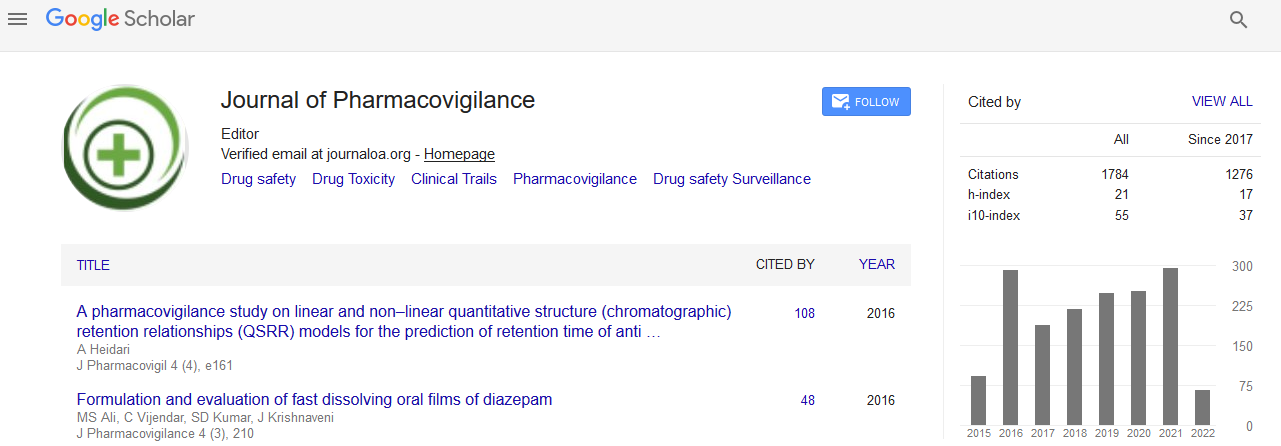Indexed In
- Open J Gate
- JournalTOCs
- The Global Impact Factor (GIF)
- RefSeek
- Hamdard University
- EBSCO A-Z
- OCLC- WorldCat
- Publons
- Euro Pub
- Google Scholar
Useful Links
Share This Page
Journal Flyer

Open Access Journals
- Agri and Aquaculture
- Biochemistry
- Bioinformatics & Systems Biology
- Business & Management
- Chemistry
- Clinical Sciences
- Engineering
- Food & Nutrition
- General Science
- Genetics & Molecular Biology
- Immunology & Microbiology
- Medical Sciences
- Neuroscience & Psychology
- Nursing & Health Care
- Pharmaceutical Sciences
Abstract
Pattern of Adverse Drug Reactions Due to Cancer Chemotherapy in a Tertiary Care Teaching Hospital in Eastern India
Anju Prasad, Pratyay Pratim Datta, Jibak Bhattacharya, Chaitali Pattanayak, Ashok Singh Chauhan and Parbaty Panda
Introduction: Adverse drug reactions (ADRs) are a global problem adding to the economic burden of the society. Anti-cancer drugs are prone to cause ADRs and there is lack of pharmacovigilance data on such drugs. Therefore the present study was undertaken to monitor suspected ADRs in the radiotherapy unit of a tertiary care teaching hospital in Eastern India. Materials and methods: The present study was done in the Radiotherapy Department of a tertiary care teaching hospital in Eastern India from March, 2012 to August, 2012 among the patients receiving cancer chemotherapy. It was a hospital based prospective observational study. ADRs were documented in Suspected Adverse Drug Reaction reporting form designed by Centre for Drug Standard Control Organizationand causality assessment was done using Naranjo scale. Results: 87% of the total patients receiving cancer chemotherapy developed ADRs. Most common ADRs found were nausea and vomiting followed by neutropenia. Cisplatin, Cyclophosphamide, 5-Fluoro uracil, Paclitaxel and Adriamycin were common drugs causing ADRs. 62% of the ADRs were probable according to Naranjo scale. Conclusion: The cancer chemotherapeutic drugs are associated with varied adverse effects. However, early detection of drug toxicity helps to modify the doses or the drug regimen to minimize toxic effects.


